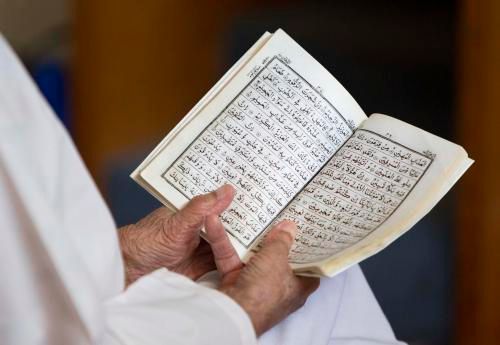First Presbyterian Church in Farmington leads classes on Islam and Christianity
FARMINGTON — With turmoil in the Middle East appearing in the news on an almost daily basis, the Rev. Glenn Perica of Farmington’s First Presbyterian Church believes now is the time to educate people about Islam and how it compares to Christianity.
“Ever since 9/11, we who did not understand very much about the Muslim faith certainly have been exposed to it,” Perica said.
A 10-week course entitled “Christianity and Islam: So Much In Common, So Far Apart” introduces people to the faith. The course begins Sept. 4 at Farmington’s First Presbyterian Church.
The course aims to help Christians understand the similarities and differences between the two world religions.
Walter Declerck of Dar al Islam, an Abiquiú-based Islamic education center, said all authentic world religions have the same message.
“There is one God, one divine reality,” Declerck said.
Declerck said all religions teach people to follow divine guidance, such as the teachings of Jesus or the Quran.
“There is much more that is common than is different,” he said.
One similarity both Christianity and Islam share is the desire for peace, Perica said. He thinks that learning about Islam will help bring the Christian and Muslims closer to peace. While some people associate Islam with terrorism, that’s not representative of the faith, Perica said, just like the members of Westboro Baptist Church are not representative of Christianity.
Perica said people attending the course might find it surprising that Muslims revere Abraham as a patriarch of their religion, just like Christians and Jews.
“Islam also treats Jesus as a prophet and respects him,” Perica said.
Despite the many similarities, the two religions have different beliefs. One of the main differences is how each religion views the role of women.
Perica said that women play a larger role in the Christian faith, though their exact roles differ among denominations. In Presbyterian churches, for example, women can serve as pastors while in other denominations, such as the Roman Catholic Church, women are not allowed into the higher positions of power.
Declerck, however, disagreed with the assessment that women have lesser roles in Islam.
“The prophet was a champion of women’s rights,” Declerck said.
In 600 A.D., when women in Europe were not allowed to own property, Muhammad said women had property rights and couldn’t be forced to marry, Declerck said.
Declerck said the main differences between Islam and Christianity is that Christianity holds on to the concept of the Trinity and regards Jesus as God.
One additional difference between the two faiths, according to Declerck, is that Christians believe people are born with the original sin.
“Islam says that you’re born pure,” Declerck said.
Understanding more about Islam can help Christians develop relationships with Muslims, Perica said. Especially with violence in Syria and other Middle Eastern countries, Perica said people need to gain a greater understanding of Islam. That, he said, will help Christians while they pray for the Middle East.
“Our prayers for peace are something that God will honor,” Perica said.
Declerck said he thinks Christians and Muslims could learn respect, understanding and collaboration from each other.
“It’s important for Muslims to learn about Christianity — authentic Christianity,” Declerck said. “It’s important for Christians to learn about Islam — authentic Islam.”
In addition to learning about other religions, the course aims to expand people’s world view. Perica said Americans have the tendency to focus mainly on themselves and to think that the world revolves around western civilization and Christianity. But that view needs to change, he said. As the population grows, more religions come in contact with Christianity and Christians need to learn to coexist with other faiths, he said.
“The world’s no longer flat,” Perica said.
Hannah Grover covers news, arts and religion for The Daily Times. She can be reached at 505-564-4652and hgrover@daily-times.com. Follow her @hmgrover on Twitter.


















